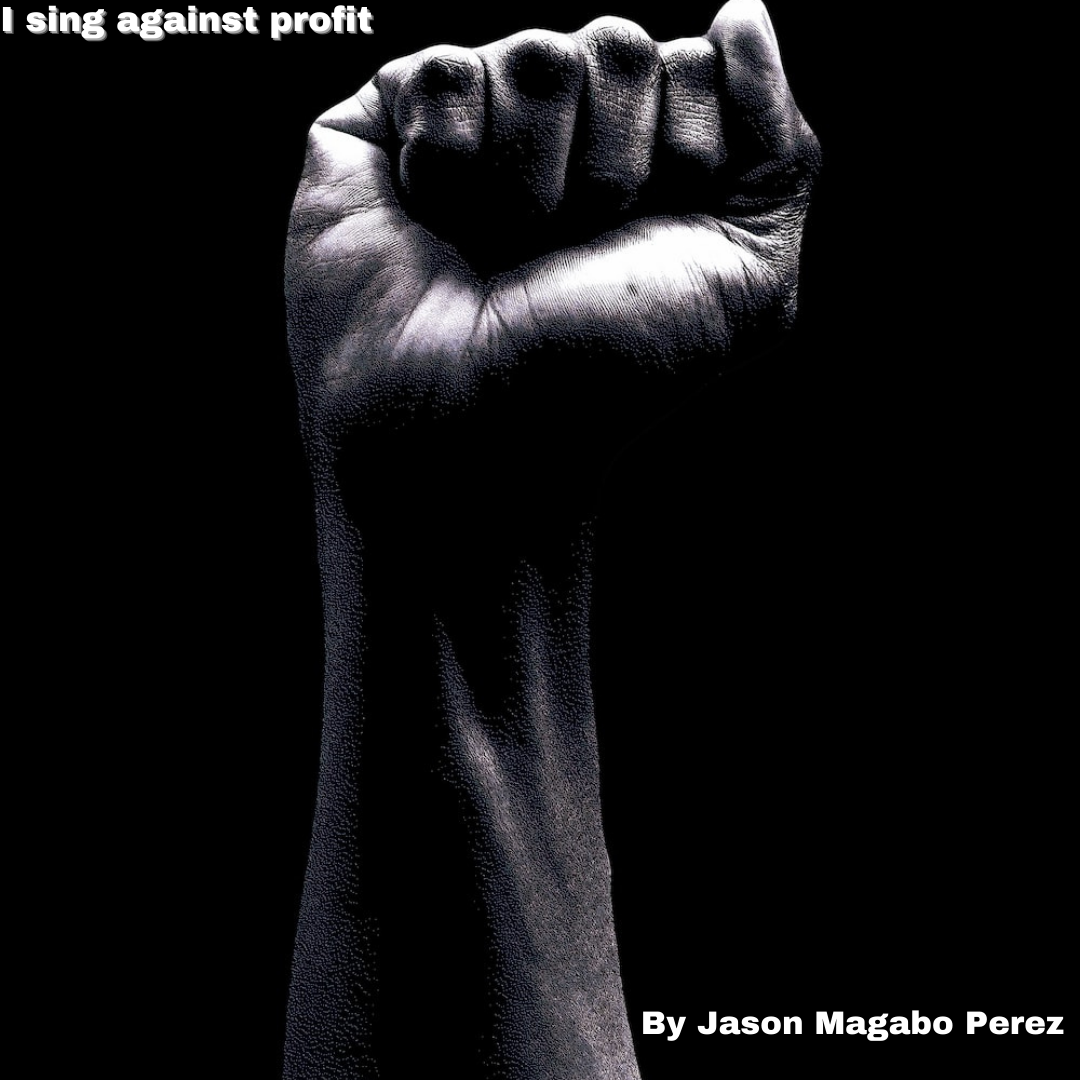so that I may invent my lungs
AIMÉ CÉSAIRE
1.
call this radicalized
grief call this rigorous
animality call this
divine sorrow
2.
in which there is no innovating
loss in which dead batteries
flatten under the weight of car
in which I ask for nothing but
to live in this suffering in which
skull itself throbs against baton
in which history is murky in
which we murk history the ways
in which these deliverances happen:
I have not a desire but a need to be
this nobody who knows no one
or nothing on the way to nowhere
3.
I ask for your tenderness, for there collects a
redundancy, figures in search of the wept,
figures in search of those that history violates.
These figures remain nonpropertied. These
figures need no permission for such savage
alleyspeak, for these bodies of want. Tell me
of current pleasures. Tell me of our midnight
drives from Chula Vista back to City Heights.
Tell me we will always pass ten to fifteen
Somali men convening joyously outside the
little market beside the banh mi shop. Tell me
this outside capital. Tell me this is better than
a war of maneuver. Tell me of this war for
position. Tell me this block won’t get hot.
SWAT executes a Southeast Asian man
who earlier allegedly shot and killed an older
Latino man who perhaps a month ago heard
about the stabbed Latino man hobbling down
our street. Refuse language that describes this
city as killing itself. No matter how marxist
this text might bend, down our street, through
our alley, no matter the redirection of traffic
these days to make us dodge a scene, these are
family histories. No matter how craft incites
gentle rumination, we are fish in a flood, flood
of bodies, flood in crosswalk—ruin of state
apparatus. Yes, Black freedom! Yes, even
middle class brown and white youth duct-tape
handwritten cardboard signs to their new
Hyundais and rap the fuck out of “Fuck tha Police.”
Show me everything anti-imperialism. Show me
this historiography of feeling: Black and brown
refugee and migrant families line University Ave
during this caravan protest because they know,
so intimately, the surveillance, the threat, they
know, so intensely, that police terror is routine.
Let us stop pretending. Let us become neighbors
against and outside of state. Some poetics
pretend a non-rhetoric to let language do its
own work, and in such pretending such poetics
fail to read poetics as a work doing work in the
form and content of wake, of tattered trash bag
capital, chewed water bottle caps, Abolition
Now! pins, and perfectly inflated birthday
balloons. Teach me to fight against ethnographic
impulse, to cancel the descriptive, the snapshot,
the spectacle, the grace of rigorous solitude. I
may be super annoyed, but something super is
happening next door—a youth gamer is
screaming at the screen: Fuck the police, Bro!
And yes, Bro, show me hella Muslim cabbies
double-parking their Priuses all along this alley.
4.
I give you this labored breathing.
I give you wreckage from material
joy. I give you miracle of collapsed
rapture. I think of my cousin who
works as a crying lady. Each day,
he wakes up to perform a mourning
for wealthy strangers. Each day,
an unrelenting fetishization of sorrow.
5.
What remains is a temple of internalized
rupture. What remains are scraps of
syntax. What remains is vulnerable to
wage theft. I sing against profit. I sing
lost against return. I sing estimated
antagonisms. What is blessing but bluff
and confusion, a weight of need versus
a weight of disrepair? All that is different
maddens and thrills. All that is this
absolutely dead smell in a river of
dank weed and the nonserious kinship
of isolation. There is something gentle
in rethinking revolution itself, shrapnel of
afterlives, disposabilities of heartbreak,
vinegar of paranoia. In workshop, I sing
as replaced tenant, against hello, with
cranial guitar strings strummed hella hella.
NOTES
The epigraph is from Aimé Césaire, Return to My Native Land, translated from the French by John Berger and Anna Bostock (New York: Archipelago Books, 2013), 78. This work samples from, remixes, and/or is deeply informed by the political-intellectual energy of the following sentences, fragments, and phrases, and the larger works within which they are found: “divine sorrow” and “radicalized grief” in Neferti X. M. Tadiar, Things Fall Away: Philippine Historical Experience and the Makings of Globalization (Durham: Duke University Press, 2009), 370, 15, respectively; “there is no innovating loss” in Claudia Rankine, Don’t Let Me Be Lonely (Minneapolis: Graywolf Press, 2004), 57; “I have not a desire but a need for solitude” and “I ask for nothing but to live in my suffering” in Roland Barthes, Mourning Diary, translated by Richard Howard (New York: Hill and Wang, 2010), 91, 174, respectively; “war of maneuver” and “war of position” from Antonio Gramsci, Selections from the Prison Notebooks of Antonio Gramsci, edited and translated by Quintin Hoare and Geoffrey Nowell Smith (New York: International Publishers, 1971), 239; and “cranial guitar” references the gorgeously resonant title of Bob Kaufman, Cranial Guitar (Minneapolis: Coffee House Press, 1996).
Jason Magabo Perez serves as San Diego Poet Laureate 2023-24. Perez is the author of Phenomenology of Superhero (Red Bird Chapbooks, 2016) and This is for the mostless (WordTech Editions, 2017). Perez’s work has recently been featured on NPR’s Here & Now, and has also appeared in Witness, The Feminist Wire, Entropy, Marías at Sampaguitas, and Interim. Perez is Associate Professor and Director of Ethnic Studies at California State University San Marcos.

